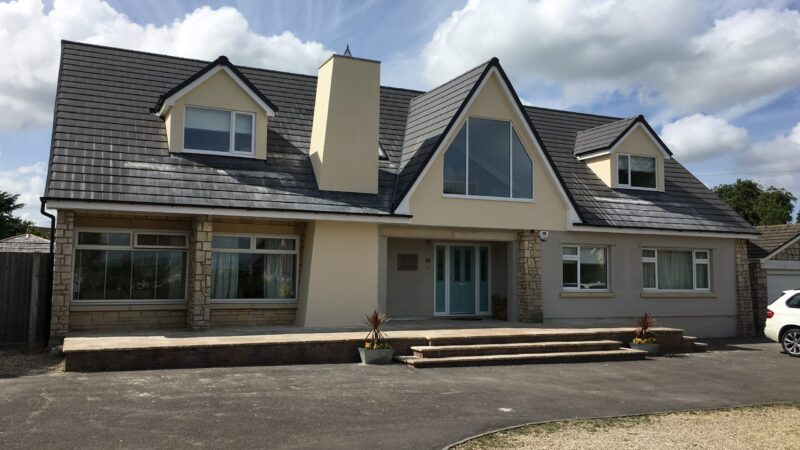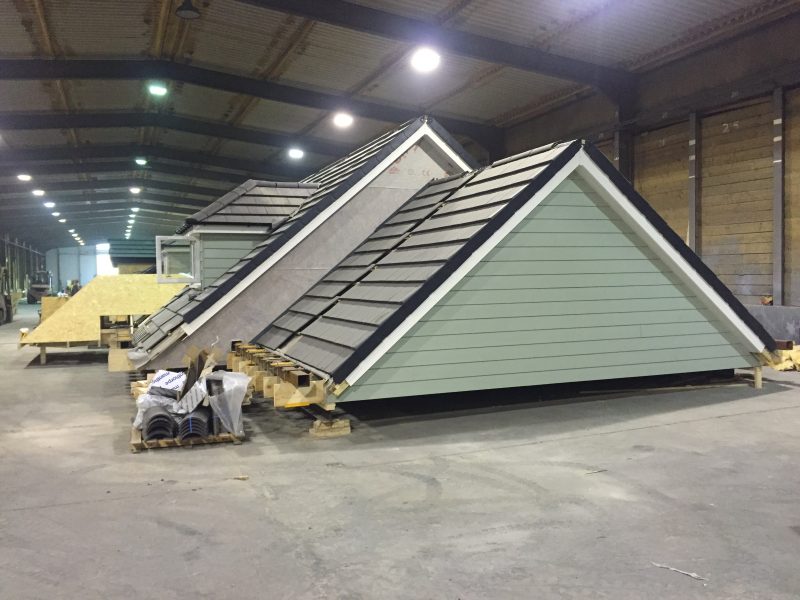Whether you want to increase your living space to make room for your ever-growing family or you want to transform your bungalow by building an additional storey, you are likely weighing the benefits of modular vs traditional loft conversions. In this article, we will outline the differences between modular extensions and traditional construction methods, providing our insights into both processes so that you can make an informed decision before embarking on your latest renovation.

What Are Modular vs Traditional Loft Conversions?
Unlike the different types of loft conversions, such as dormer and mansard, which relate to how buildings are modified to accommodate new living spaces, modular vs traditional construction refers to the method of conversion rather than the end product. In theory, identical loft conversions could be completed through modular and traditional approaches, but the cost and duration of either project would undoubtedly be very different.
- Modular Loft Conversions
As its name would suggest, the modular approach to loft conversion involves building the components of an extension off-site, then lifting the prefabricated structure onto the property to complete its installation. This process involves taking measurements at the property beforehand, then constructing separate sections of the extension, known as modules, in an enclosed warehouse. Once the modules have been completed, they are insulated with weather-resistant materials, placed on the back of large transport vehicles and delivered to the property to be crane-lifted into place.
- Traditional Loft Conversions
On the other hand, the traditional approach to loft conversion keeps the building work on-site at the property. After the available loft space has been cleared, builders will create the framework for the new living space inside the property, boarding the new floors, insulating the existing roof and reinforcing any of the structural elements. Once the interior partitions have been introduced, the exterior walls and roof need to be weatherproofed before the electricians and plumbers can finally complete any necessary wiring or pipework.

How Are Modular and Traditional Construction Different?
From the amount of time spent working at your property to the total duration of your project, there are many differences between modular extensions vs traditional construction which you need to consider before committing to either approach. Some of the most significant differences include:
- On-site vs Off-site Construction
As most of the construction involved in modular loft conversions takes place in an off-site factory, this substantially reduces the time that builders, electricians and other tradespeople need to spend working at your property. This can be slightly disconcerting for property owners, as without being able to see the progress of their project, it can be hard to gauge how close it is to completion. For this reason, Moduloft invites customers to visit our factory while their modules are under construction, so that they can see their loft conversion coming together and start to feel excited about their new living space.
Meanwhile, the traditional method of loft conversion typically involves all building work being completed on-site, including carpentry, insulation and weatherproofing external elements. While many traditional construction companies create temporary ‘tin hat’ roofs from scaffolding materials to protect the property from water damage, extreme weather can make it unsafe to continue work on the conversion, suspending the project until the poor weather subsides.
- Material Consumption
As the design of loft modules is finalised before any construction work can begin, modular construction companies can order the precise amount of materials they need to complete the project. This minimises material wastage generated during construction, while mitigating the chance of customers having to pay additional charges later in the project.
Unlike modular extensions, the traditional approach is infamous for its wastage, as carpenters and builders have to estimate the amount of materials they will need before each project. Furthermore, should any mistakes be made during the construction or installation of elements, or should any structural weaknesses or damages be discovered during construction, additional materials will need to be purchased to remedy these errors.
- Timeframes
When loft conversions are done traditionally, the process must be approached sequentially, with certain tradespeople being prevented from starting their work until other foundational or structural elements have already been completed. This means that, should one element of construction run over or be delayed, this can impact the completion of every subsequent task, adding weeks or even months to the overall project.
By breaking down the building work into separate elements, the modular process allows multiple tradespeople to tackle different parts of construction simultaneously, streamlining the process while providing much more flexibility. Once the modules are completed, electricians and plumbers can similarly work around one another to ensure the installation is finished in the fastest possible turnaround, with many Moduloft projects being finalised within a fortnight.
- Budgeting
As every element of a modular loft conversion has to be planned and agreed on at the beginning of the project, modular companies can provide accurate quotes for their services that will remain the same throughout the project.
Unfortunately, the same cannot be said for traditional construction. In light of the delays, surprises and mistakes we have already mentioned, it is quite likely that the cost of your traditional loft conversion will creep up throughout the process, potentially putting you in a position where your project exceeds your budget.
Get a Free Quote for Your Modular Loft Conversion
If you are eager to transform your unused space through our revolutionary approach to residential and commercial renovation or if you would like more information to help you choose between modular and traditional construction, please get in touch with your local Moduloft team today or request a free quote via our online form.
